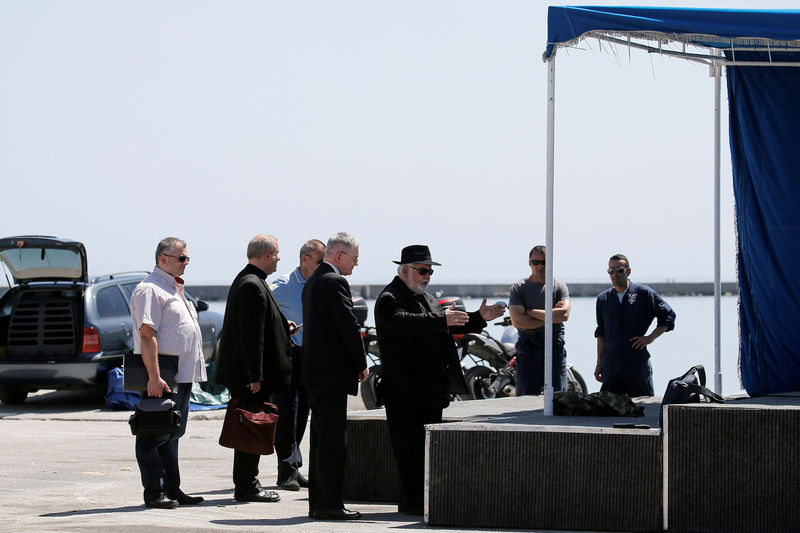By Karolina Tagaris and Philip Pullella
LESBOS, Greece/VATICAN CITY (Reuters) - Pope Francis and the spiritual head of the world's Orthodox Christians will set aside centuries of dispute on Saturday when they visit a Greek island on the front line of Europe's migrant crisis to highlight the plight of refugees.
Nearly a million people, many fleeing war, persecution and poverty in Syria, Iraq and Afghanistan, have risked their lives in rickety boats from Turkey, crossing to Lesbos before heading to the Greek mainland and onwards to western Europe.
Hundreds have died, leaving land plots on Lesbos dotted with unidentified graves.
In a lightning trip, the pope will meet refugees along with Bartholomew, the Istanbul-based spiritual head of the world's 250 million Orthodox Christians, and Ieronymos II, head of the Greek Orthodox Church.
The pope, leader of the world's 1.2 billion Roman Catholics, has often defended refugees and urged Catholic parishes in Europe to host them. His first trip after becoming pontiff in 2013 was to the Sicilian island of Lampedusa, which, like Lesbos, has received many thousands of refugees.
On Saturday, the three leaders will visit Moria, a sprawling, fenced complex holding more than 3,000 refugees since the European Union and Turkey reached a deal last month to stem the flow. Many at Moria will be sent back to Turkey if asylum applications are rejected.
Pope Francis, Bartholomew and Ieronymos are due to greet 250 refugees requesting asylum and eat lunch with eight in a container before heading to the port, where the pontiff will deliver a speech and each leader will recite a prayer for victims.
Aid groups and the United Nations refugee agency (UNHCR) have left Moria in protest at the conditions there.
Volunteers say the pending visit of the religious leaders triggered a massive clean-up. Several dozen people have been transferred to a nearby camp the pope will not see, walls have been repaired and painted and tables and chairs set up. Journalists have been barred from entering.
"If nothing else, the pope's visit will give half of the prisoners a better quality of life for a few days," said Alison Terry-Evans, who runs Dirty Girls, an organisation which launders blankets handed out by UNHCR.
"STAB IN THE BACK"
Beyond the humanitarian message, the visit is part of efforts to mend ties between the Catholic and Orthodox churches.
Theological differences and historical circumstances caused the Great Schism of 1054, splitting Christianity into a Western branch, which is mostly Catholic and Protestant, and the Eastern branch, which is mostly Orthodox.
"The patriarch and the pope share radical ideas and both have the burning desire to move a step forward towards the rapprochement of the two Churches," said Petros Vasiliadis, a Greek biblical scholar and retired theology professor.
Animosity remains among some Orthodox over the 1204 sacking of Constantinople, now Istanbul, seat of the Eastern Church.
Orthodox theology students wrote a letter "begging with tears" for the visit to be cancelled "or the consequences will be disastrous." A senior cleric called it a "stab in the back."

"If the pope of Rome wanted to offer substantial help to the migrants, he could have created somewhere in Italy, with Vatican money, a dignified reception centre for refugees and take in the downtrodden people in Idomeni," said Bishop Amvrosios of Kalavrita, referring to some 10,000 migrants and refugees stuck on Greece's northern border.